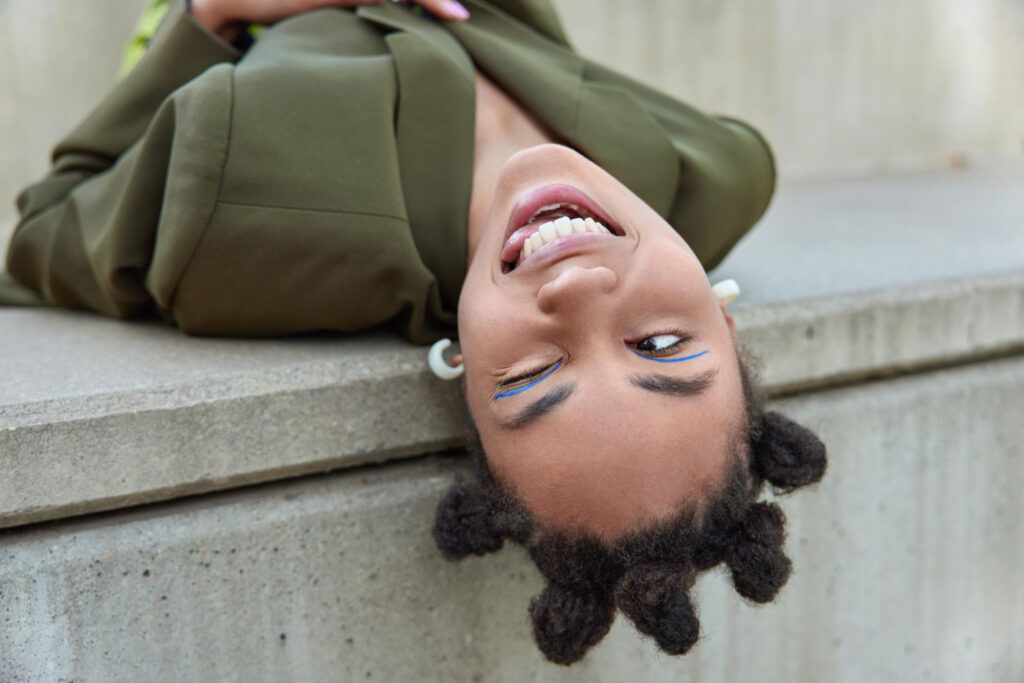What facts do you know about the Dutch language? It’s kind of close to English and people sound like they’re choking when they’re speaking, right?
But there are a ton of other awesome and interesting things about the Dutch language, like 👇🏼
- the obsession with consonants,
- untranslatable words, and
- even using Hebrew slang.
Are you ready to impress your international and Dutch friends with some mind-blowing fun facts? 🧐
Daar gaan we! (Here we go!)
1. Dutch is also spoken outside of the Netherlands 🇸🇷🇦🇼🇸🇽
Because of *ahem* colonialism, the Dutch language has made its way to countries on the other side of the Atlantic Ocean, such as Suriname, Aruba, Curaçao, and Sint Maarten.
The last three are actually still part of the Kingdom of the Netherlands and even name Dutch as one of their official languages.
Dutch is also spoken in Flanders, in northern Belgium, however, with a different dialect called Flemish or Vlaams.
You’ll probably hear Dutch people either making fun of this accent or finding it super cute (because of their soft g’s and slight French accent) — there’s no in-between!
You’ll also find some Dutch speakers in Germany, near the shared border with the Netherlands.
2. But the Netherlands is the only country where Dutch is the only official spoken language
That’s right, the Netherlands has only one official spoken language — and it’s Dutch (even though we could totally buy the country making English a second official language 😉).
Other countries also have Dutch as an official language, but these countries also have other languages in the mix as well. But in the Netherlands, it’s only Dutch!
You may be thinking “What about West Frisian?” which is a language you might hear in the northern parts of the lowlands.
In this case, it’s only recognised as an official language in the province of Friesland — but not in the rest of the country.
As for non-spoken languages, Nederlandse Gebarentaal (Dutch Sign Language) was only recognised as an official language on July 1, 2021. 🙌🏼
3. Dutch and English aren’t THAT similar but are still pretty close
A lot of people believe that Dutch and English are very similar, with plenty of shared vocabulary, for example, appel (apple), peer (pear), or glas (glass).
Linguistically, the two languages are close to each other. But Dutch is, in fact, not the closest language to English! Wat?!

Believe it or not, West Frisian is actually closer to English than Nederlands.
So if you’re ever in Friesland, listen carefully to what the locals are saying. You might find that you understand a whole lot more than in the rest of the lowlands. 👀
4. The Dutch are the best non-native speakers of English IN THE WORLD
If you’ve ever visited the Netherlands, you’ll know that Dutch people are freakin’ good at speaking English.
Some of them probably speak better English than you, a fact that you’re just going to have to live with. 🤷🏻♀️
READ MORE | Dutch Quirk #77: Switch to English even if you speak Dutch
Thanks to their education system and lack of Dutch dubbing in TV shows and movies, Dutchies have a super high non-native proficiency in English and rank the best out of 112 countries! 🌍
5. Dunglish (Dutch + English) is the funniest thing ever 🇬🇧🇳🇱
While most Dutchies are basically fluent in English, you might sometimes catch the rare fish that is Dunglish.
Known in Dutch as steenkolenengels, or “coal-English”, Dunglish is a combination of Dutch and English. The result of this combination is some of the funniest sentences you’ll ever hear.
READ MORE | Dutch dying out? A quarter of people in the Netherlands don’t speak the language at home
Some beautiful nuggets of Dunglish:
- “I can speak only a little English, hoor.” (What, are you calling me a whore??)
- “Just go up the trap.” (Stairs)
- “That is the car from Marieke.” (instead of Marieke’s car)
But let’s be clear: the Dutch speak amazing English — so it’s nice to know they’re human and make small errors sometimes. 😉
6. A lot of Dutch slang comes from Hebrew
Yeah, we were shocked by this one too, but it’s true! A lot of Dutch slang comes from Hebrew words from the Jewish population living in the Netherlands.
Much of it can be found especially in the Amsterdam dialect of Dutch. This makes sense because the majority of Dutch Jews lived in Amsterdam in 1940.
Here are just a few examples of Dutch slang with Yiddish origins:
| Dutch | Yiddish root | Modern Hebrew | English |
| blauw | blau | belo | drunk |
| gabber | chawwer | chaver | friend, comrade |
| jofel | jofe | yafe | good, nice |
| mokum | mokum | makom | place |
7. Dutch has some rare and weird sounds
There are some pretty funky sounds in the Dutch language and they are actually quite rare among the world’s languages.
The most interesting and unique sounds that the Dutch make are their soft “g” which is written as ch, and the hard “g” which is written as g.
You can hear the soft ch and hard g in these words:
- Acht (Eight)
- Zacht (Soft)
- Goedemiddag! (Good morning!)
- Groen (Green)

8. Despite the Dutch presence in Indonesia, Nederlands has no official status there (but does have a lot of loan words!)
Remember when the Dutch were in Indonesia for almost 350 years? You’d think that with that kind of presence, the Dutch language would still have some kind of influence, right?
Well, not really.
Dutch has no official status in Indonesia and is only spoken fluently by a small minority of people, such as educated members of the oldest generation, students who go to Dutch language schools, and legal professionals (who need it because some law codes are still in Dutch 😲).
But the Indonesian language does have a lot of loan words from Dutch. One example is the Indonesian afspraak (verbal promise), which is the same as the Dutch afspraak (appointment).
9. “Dutch” and “Deutsch” are similar for a reason
Have you wondered why the Dutch are called the Dutch? Sound pretty close to German “Deutsch”, right?
Well, we can blame the British for that. You see, they thought that anyone who spoke “a Germanic language” must have been German. So to the Brits, the Netherlands and Germany were basically the same thing.
They called the Netherlanders the “Deutsch” and the name just kinda stuck. 🙃
But in the Dutch language? The Dutch people are Nederlanders, and the language they speak is Nederlands. Makes sense, right?
10. Dutch and Afrikaans are sisters, not twins
Dutch and Afrikaans (spoken in South Africa) are very similar languages, but they are not the same thing. Afrikaans is a vernacular of the Dutch language that was spoken and brought to South Africa in the 17th century.
Although Afrikaans is derived from Dutch, it’s had language contact with other languages in South Africa and has developed into its own fully-fledged language.
So Dutch and Afrikaans speakers understand each other — kinda. There is a lot of shared vocabulary, but both languages have diverged and changed significantly over centuries.
11. There are lots of Dutch words that are untranslatable
Lekker? Gezellig? Hoor? You hear these words all the time in the Netherlands, but what the heck do they mean? Well, unfortunately, these words are untranslatable. But you can get a good idea based on the context. 💡
READ MORE | 5 Dutch idioms that are just too bizarre when translated
The weather can be lekker, an evening can be gezellig, and you can drop hoor at the end of many sentences!
You might not know the true meaning, but that won’t stop you from trying to use these addictive words, albeit possibly in the slightly wrong context. But hey, that’s Dutch for you!
12. Dutch words are long AF because of compounds
Dutch words can be loooooong. Why? It’s because of this little thing that Dutchies love to do with their words called compounding.
Compounding is when two or more individual words are combined to create a new word with its own meaning. ✨
For example, the longest Dutch word is aansprakelijkheidswaardevaststellingsveranderingen (liability valuation changes), with a whopping 50 letters!
Notice how, in English, we space out each word?

Well, Dutch doesn’t appear to see the need for spaces and just bunches up the four words (aansprakelijkheid(s) + waarde + vaststelling(s) + veranderingen) together, creating a long AF compound word. 😪
13. Dutch words have a LOT of consonants
If you think super-long Dutch words are already hard enough — it gets worse.
Dutch words can also be pretty consonant-heavy. Some of them love to line up consonants in a row without a vowel in between to get your tongue twisting in all sorts of crazy ways.
READ MORE | 11 myths about taking Dutch lessons, busted
Here are a few examples:
- Angstschreeuw (crying of fear)
- Oegstgeest (town in South Holland, near Leiden)
- Verschrikkelijk (terrible)
Yikes, what a mouthful! 😱
14. The Dutch love to swear with diseases
In many Western and non-Western languages, swearing tends to involve sex, one’s parents, or some foul combination of both.
However, the Dutch like to keep those “filthy” topics out of their mouths and instead fill it with diseases. 🦠
READ MORE | Want to seriously level up your Dutch? This course is for you
If you’ve ever accidentally walked onto a bike path, you might have gotten a little kanker (cancer) thrown your way by an irate biking Dutchie:
Other popular illness hits include:
- Krijg de tyfus/klere/pest! (Get tuberculosis/cholera/plague)
- Optyfen (Typhus off)
- Klerelijer (Cholera-sufferer)
15. Dutch has two ways of saying “the” (de and het), and a lot of people confuse the two
In English, we only have one word for “the”, but the Dutch have two: de and het. A lot of native Dutch speakers aren’t sure why this distinction exists — they just know it by heart.
De is mainly used for plural nouns, people, professions, letters and numbers, etc. On the other hand, het is used for diminutive nouns (-je/-tje ending), nouns for languages, nouns from infinitive verbs, etc.
If you wanna go deeper, de and het are used based on the grammatical gender (not necessarily the same as traditional gender) of the nouns they’re attached to. 👫
READ MORE | 21 YouTubers that’ll help you learn Dutch super fast
Basically, de words are used for masculine/feminine nouns, and het words are used for neuter nouns, but there are a lot of exceptions to this rule. So keep it simple and just memorise the definite articles as you go! 🙌🏼
16. Dutch uses diminutives -je and -tje to make things cuter
In Dutch, it’s common to hear people adding -je or -tje to the end of words to make things cuter, smaller, or friendlier. For example, it’s common to say “Mag ik een biertje?” (May I have a beer?) instead of “Mag ik een bier”.
You’ll also hear people calling their partner vriendje, which shows that the relationship is intimate. Cute, right?! 🥰
READ MORE | 15 weirdly cute things Dutch people do
It’s the equivalent to saying “Can I have a beerie?” or “This is my friendie” in English. It might sound a bit odd for us to use it as an adult and all the time — but that’s totally normal and even expected in Dutch!
17. Even the Dutch struggle with Dutch (seriously)
Native speakers aren’t perfect either! It’s very common to make mistakes even in your own language, and the Dutch are no exception.
READ MORE | An expat’s guide to learning the Dutch language
Even if their English/German/French skills may knock you out of the water, some of them have similar struggles to us, internationals, and might make these mistakes:
- Mixing up die (this) and dat (that), dat (that) and wat (what), als (if/when) and dan (than)
- Not sure whether to use t or d for the end of a past tense verb
- Confusing the references to de and het (the)
So don’t feel bad if you mess up now and again, the Dutchies do it too. 😉
We hope this list helped you build on your Dutch knowledge and that you now have a bunch of fun language facts to share with people at parties (hopefully they’re as obsessed with languages as we are 😆).
We also hope this motivates you on your journey to learning Dutch or encourages you to find a Dutch language school! Succes! 💖
Which fact surprised you the most? Do you have any fun facts about Dutch? Tell us your thoughts in the comments below!






Krij in Fries en in Glasweger byelkoar en se sille gjin muoite hawwe om inoar te begripen
Get a Friesian and Glaswegian together and they will have no trouble in understanding each other.
Even ‘a green door’ in English is ‘in griene doar’ in Frysk; as for the famous saying “Bûter, brea en griene tsiis, wat’dat net sizze kin is gjin oprjochte Fries!”, in Dutch “Boter, brood en groene kaas, wie dat niet kan zeggen is geen echte Fries!” and in het Engels “Butter, bread, and green cheese, who can’t say that is no real Frisian.”
Languages are living, adapting to the need to express ever changing reality. When certain means of expression in American English are regarded as slang or poor form or even mis-spelled, the roots are either c18th English or of French or Dutch or German immigrant origin: Ah’ll learn yah : I’ll teach you! : Ik zal je leeren!
This is so interesting.
Where can I find out more about it? Hopefully there is a book or two, but web citations would also be appreciated.
That part about slang reminded me of the frequently commented on ‘hoor’ at the end of a statement. There certain parts of the states where you might hear someone say: ‘ Y’all better behave, ya hear?’
Belo is not a word in Hebrew. ..and definitely not drunk. .
Goedemiddag means good afternoon instead of good morning. Good morning is goedemorgen in Dutch.
In the example ‘verschrikkelijk’, you made a mistake. The ij in this word is a diphthong, and ‘ch’ is one sound, which is pretty close to ‘r’, so it could be argued the second r is kind of silent. So the combination of vowels and consonants look a bit like this: CVCCVCVCVC. I forgot to mention, ‘kk’ is just one sound, it always is.